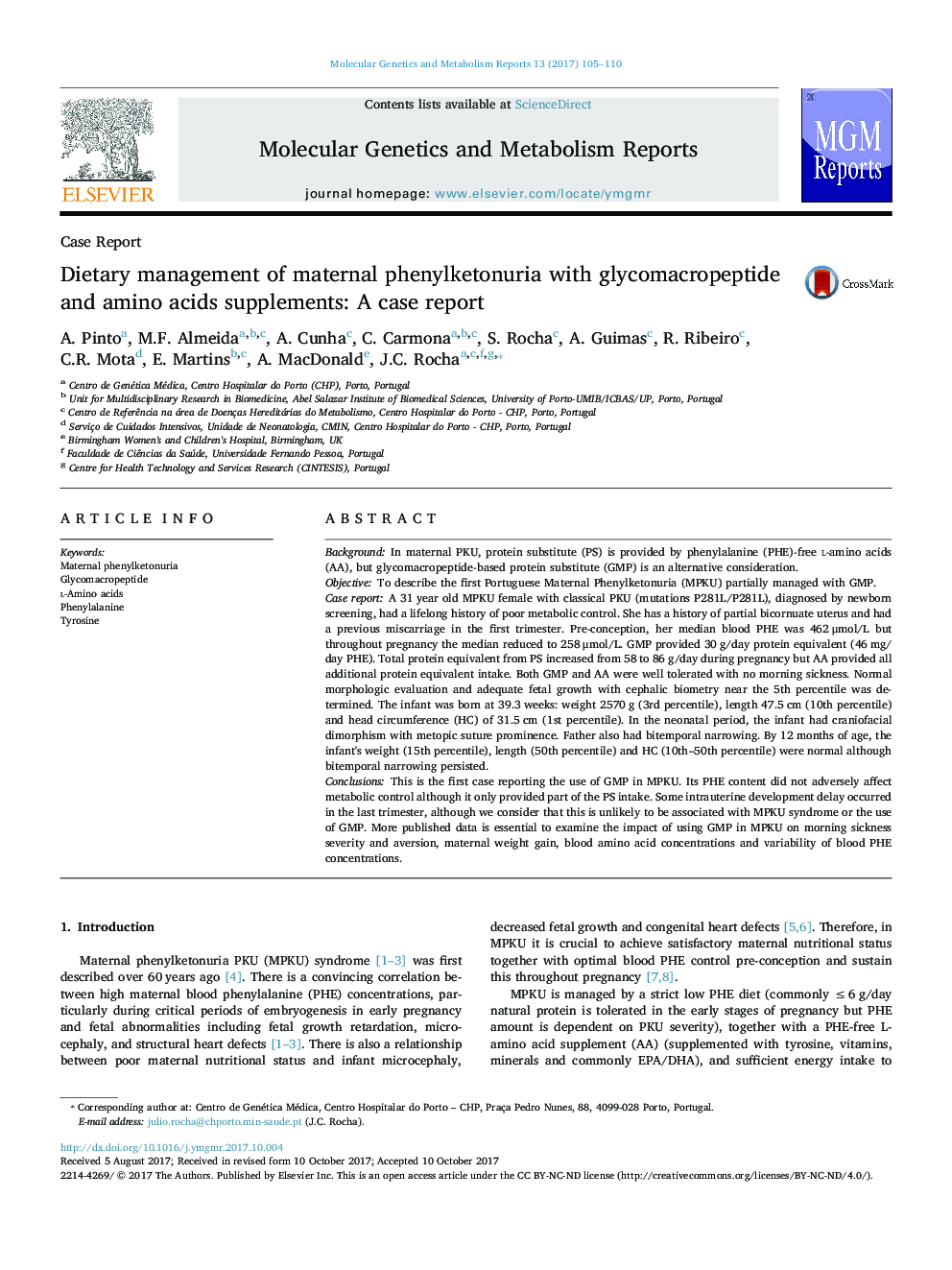| کد مقاله | کد نشریه | سال انتشار | مقاله انگلیسی | نسخه تمام متن |
|---|---|---|---|---|
| 5518518 | 1543973 | 2017 | 6 صفحه PDF | دانلود رایگان |
BackgroundIn maternal PKU, protein substitute (PS) is provided by phenylalanine (PHE)-free l-amino acids (AA), but glycomacropeptide-based protein substitute (GMP) is an alternative consideration.ObjectiveTo describe the first Portuguese Maternal Phenylketonuria (MPKU) partially managed with GMP.Case reportA 31 year old MPKU female with classical PKU (mutations P281L/P281L), diagnosed by newborn screening, had a lifelong history of poor metabolic control. She has a history of partial bicornuate uterus and had a previous miscarriage in the first trimester. Pre-conception, her median blood PHE was 462 μmol/L but throughout pregnancy the median reduced to 258 μmol/L. GMP provided 30 g/day protein equivalent (46 mg/day PHE). Total protein equivalent from PS increased from 58 to 86 g/day during pregnancy but AA provided all additional protein equivalent intake. Both GMP and AA were well tolerated with no morning sickness. Normal morphologic evaluation and adequate fetal growth with cephalic biometry near the 5th percentile was determined. The infant was born at 39.3 weeks: weight 2570 g (3rd percentile), length 47.5 cm (10th percentile) and head circumference (HC) of 31.5 cm (1st percentile). In the neonatal period, the infant had craniofacial dimorphism with metopic suture prominence. Father also had bitemporal narrowing. By 12 months of age, the infant's weight (15th percentile), length (50th percentile) and HC (10th-50th percentile) were normal although bitemporal narrowing persisted.ConclusionsThis is the first case reporting the use of GMP in MPKU. Its PHE content did not adversely affect metabolic control although it only provided part of the PS intake. Some intrauterine development delay occurred in the last trimester, although we consider that this is unlikely to be associated with MPKU syndrome or the use of GMP. More published data is essential to examine the impact of using GMP in MPKU on morning sickness severity and aversion, maternal weight gain, blood amino acid concentrations and variability of blood PHE concentrations.
Journal: Molecular Genetics and Metabolism Reports - Volume 13, December 2017, Pages 105-110
